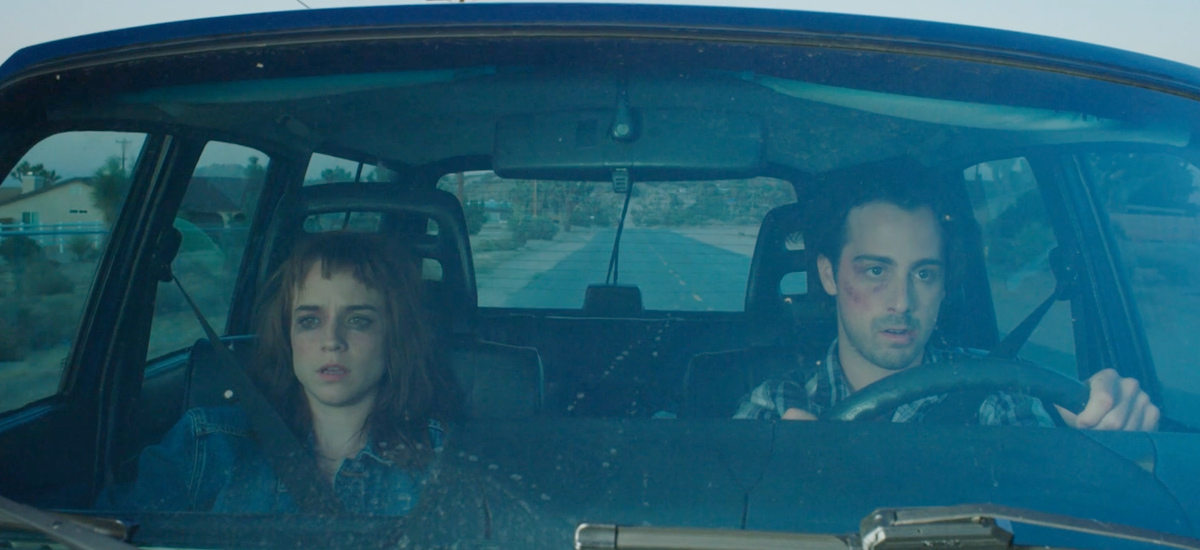If it walks like a “coming of age movie”, talks like a “coming of age movie” and looks like a “coming of age movie”, then why would a movie dedicate part of it’s run time trying to convince the viewer otherwise? Sitting in this precarious position is Elijah Bynum’s Hot Summer Nights
. A film that so so wants to be many things, most of all, like it’s lead character, is desperately liked.
Taking place around Cape Cod in the summer of 1991, the movie focuses on gawky teenager Daniel (Timothee Chalamet). He is forced to stay with his aunt in the area for the summer, by his recently widowed mother, hoping that the scenery will help him cope, apparently. The opening narration and turbo editing, emulating both PT and Wes Anderson on acid and none of the whimsy or majesty, clue everyone one in on the kind of movie it wants to be. Daniel’s main drawback seems to be that he is invisible both to the townies and the tourists that inhabit the peninsula.
Just as fast as Daniel arrives he becomes obsessed with the resident bad boy, Hunter Strawberry (Alex Roe). Yes, that is his name, and no unfortunately, no one has an issue with it. That may have to do with the fact that he’s the area’s main pot dealer. After Daniel helps Hunter out with a favor, the two become fast friends and tone shifts along with the change.
Suddenly the light summer fare jumps into the world of the drug trade and things get jumbled, to say the least. Out of nowhere, Daniel decides that they need to move more weed in order to make more money, but no indication is given towards what anyone is saving for. They end up catching the eye of a big supplier and his self stylized enforcer, Dex (Emory Cohen). In the few scenes he has, Dex comes across as a cartoon character, existing on a different plane, exposing a dissonance in the process.
Because things need another layer to complicate things, Hunter has a sister who is the most popular girl in town, McKayla (Maika Monroe). Inevitably this ends up in a triangle where each side asks Daniel to stay away from the other. None of this is helped by the fact that McKayla’s interest in Daniel is jumbled at best, odd at worst. What initially attracts her to him, gives him confidence and sees him change his look, demeanor, etc. to keep her.
There are too many instances of tonal discord for it to simply be a mistake. The movie is set specifically in 1991 to use Hurricane Bob as a background, yet it’s the 50’s that get emulated throughout. From the styles of clothing, the local fair, roller girl car hop to general actions of the characters, it comes off as more than a little odd.
This continues to the script as well. The narration is one thing, seeing as how it disappears for long stretches and whose connection to the events of the plot is tenuous at best. While the research hasn’t been done yet, there are also direct lines in the movie that feel as if they’re lifted wholesale from better movies. Cliche for cliche-sake is one thing, but these moments stick out like sore thumbs.
As far as first directed films go, Hot Summer Nights
is middle of the pack. It has a visual style that is vibrant and catchy, but follows suit with the rest of the movie in that it owes it’s vision to other movies. It’s one thing to sprinkle a film with homages, it’s another to crib that style and call it your own. The movie is sure to find a home with general audiences, so it can only be hoped that Elijah Bynum is is able to find himself. As long as he doesn’t make another “coming if age” film about it.



